Advanced Networks Research Group
- Overview
- ANRG Lab Facilities
- Members
- Projects
- Research Students
- Meetings & News
Overview
Wireless communication is one of the most important and critical part of our daily lives. In a modern living society, we want to be connected everywhere, anywhere and anytime which is only possible if we have reliable and efficient wireless communication networks available. With the invention of new wireless communication technologies such as 6G, 5G, Massive MIMO, Internet of Things (IoT), Smart Cities, Vehicular Ad-hoc Networks (VANETs) and many more, the role of wireless communication has even increased more for the society.
The Advanced Network Research Group (ANRG) is the hub of wireless communication networks related research at CSU. The research members of the ANRG conduct research in pure as well as applied research related to modern wireless communication systems and related areas.
ANRG Physical Location: Room 201, Building 11, Wagga Wagga Campus
Group Contact: Dr M Arif Khan, Email: mkhan@csu.edu.au; Ph: 02 693 34711
The aims of the Advanced Network Research Group are as follows:
- to conduct original cutting edge research in wireless communication networks and the related disciplines;
- to increase the academic and industry research collaboration to solve real life problems;
- to extend the ANRG research outputs for the benefit of regional communities;
- to provide high quality cutting edge wireless communication networks training and education to undergraduate, Honours, PhD and DIT students at CSU.
ANRG Lab Facilities
ANRG currently has following lab equipment and facilities:
- Shimmer Platinum and Kinematic kits (2x)
- SunSPOTS SDK Kits (6x)
- ServoBlocks
- IRIS WSN Educational Kit
- MICA2 WSN Development Kits
- CelleBrite UFED Ultimate
- Libelium Waspmoste Kit
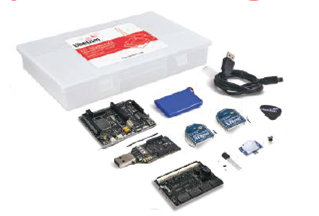
- Libelium Waspmote Evaluator Kit
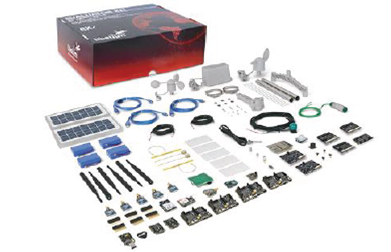
Members
Name | Position | Campus | Photo | |
|---|---|---|---|---|
Associate Professor | Wagga Wagga | 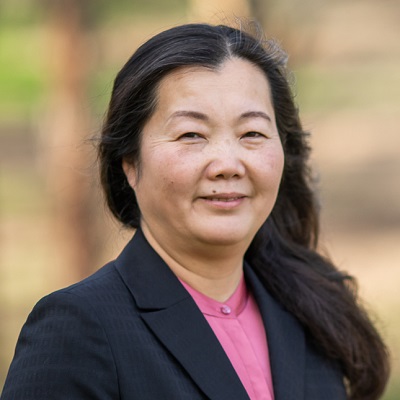
| ||
Sub-Dean (Graduate Studies) / Senior Lecturer | Wagga Wagga | 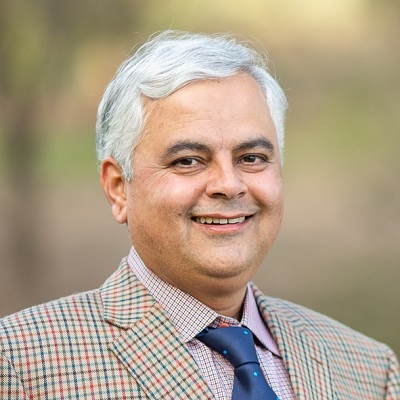
| ||
Senior Lecturer | Wagga Wagga | 
| ||
Senior Lecturer | Port Macquarie | 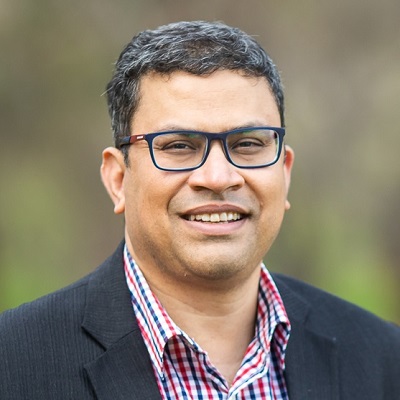
| ||
Senior Lecturer | Wagga Wagga | 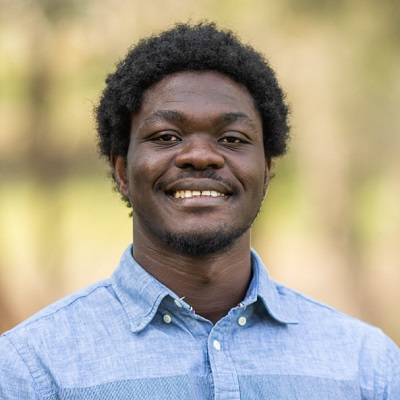
| ||
| Mostafa Dahshan | Lecturer | Bathurst | 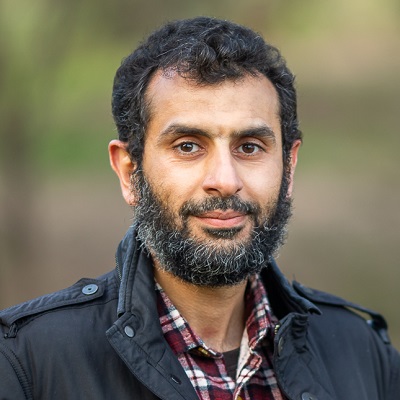 | |
Lecturer | Port Macquarie | 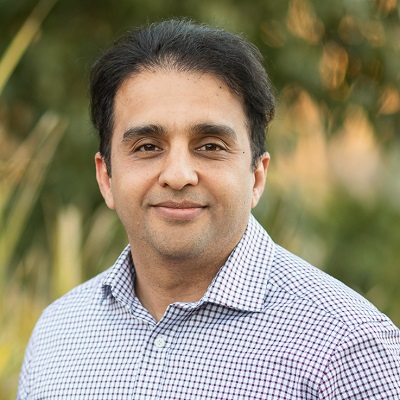 | ||
Adjunct Professor | Wagga Wagga | 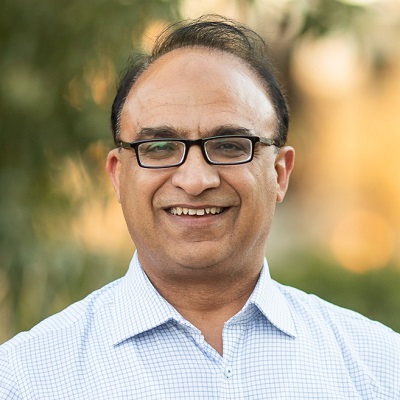 |
Projects
Sixth Generation (6G) Wireless Communication Networks
Sixth Generation (6G) is a new emerging wireless technology that is gaining attention from academic and industry researchers. Year 2019 is considered as ‘year zero’ for 6G research. Although, many commercial telecom companies around the world are in the implementation phase of 5G, researchers think of applications and scenarios where 5G will not be able to fulfil the requirements, such as Augmented Reality applications.
This project is focused on 6G architecture, new user applications and the role of Machine Learning (ML) for 6G wireless communication networks. In particular the project studies Deep Learning (DL) (one of the types of ML) for 6G wireless channel modelling. It is envisioned that ultra-massive MIMO (UM-MIMO) will be one of the candidate for 6G physical layer technologies. In this project, we investigate how DL can be used to estimate this UM-MIMO wireless channel.
Researchers: M. Arif Khan, Sabih Rehman
Project Status: 2020 – on going
Efficient Resource Allocation in 6G Networks using Deep Learning
One of the important design questions for 6G networks will be efficient resource allocation among various users and devices close to the edge of the network without going to the cloud or some other centralised places. Resource allocation requirements are both at the user level and also at the network level. At the user level, it is important to know that how mobile users can efficiently use the computational resources among themselves and from the network. At the network level, the research question is that how various edge networks can efficiently allocate and use resources so that user tasks can be performed effectively and quickly. This project investigates both of these research questions.
Researchers: Syed Usman Jamil, M Arif Khan, Sabih Rehman
Project Status: 2020 – on going
Vehicular Ad-hoc Networks (VANETs)
Smart autonomous vehicles are future of the modern transportation system. Modern autonomous cars will have self-driving capabilities and being more energy efficient to support smart cities and green environment concepts. In this project, we are developing routing protocols and broadcasting strategies for vehicular ad-hoc networks. Efficient cross layer routing provides fast and correct dissemination of messages from one vehicle to another vehicle or to other infrastructures. Another research problem that we investigate in this project, is broadcasting storm problem where many vehicles transmit their information over the wireless medium and creates congestion and blockages. This may occur in the application where advertisement messages may have been broadcast from vehicles. We use Genetic Algorithms to optimise the broadcast storm problem and provide solution for this issue.
Researchers: Sabih Rehman, M. Jafer, M. Arif Khan, Tanveer Zia
Project Status: 2012 – 2020 Complete with two PhD completions.
Research Students
Student Name | Course (PhD, DIT, Honours) | Project title | Project status | Supervisory team |
|---|---|---|---|---|
Jasneet Kaur | PhD | Future generation wireless channel characterisation using Machine Learning techniques | Ongoing | Principal Supervisor: M Arif Khan |
Samrah Arif | PhD | Wireless channel characterisation for Low Power IoT Devices for smart environment applications | Ongoing | Principal Supervisor: M. Arif Khan |
Ather Saeed | PhD | Fault localisation, tolerance and self-stabilisation in wireless sensor networks | Ongoing | Principal Supervisor: M. Arif Khan |
Wajid. A. Shaik | PhD | Developing data analysis techniques for IoT devices | Ongoing | Principal Supervisor: M. Arif Khan |
Michael Conroy | DIT | Benefit analysis of Intelligent Process Automation (IPA) and human labour arbitrage within IT-Business Processing Outsourcing (IT-BPO) | Ongoing | Principal Supervisor: Lihong Zheng |
Jamil Isphahani | PhD | A novel technique to detect and prevent sensitive data leakage in hyper connected network while being exfiltrated by malware. | Ongoing | Principal Supervisor: Rafiqul Islam |
Abdu Ahmed | DIT | Insiders attack detection and mitigation in hyper connected IoT networks | Ongoing | Principal Supervisor: Lihong Zheng |
Syed Usman Jamil | PhD | Resource allocation in 6G enabled Edge Networks | 2020 – ongoing | Principal Supervisor: M. Arif Khan |
Ron Bester | DIT | Next Generation Cloud Computing: Security, Privacy and Trust Issues from the System View | 2020 – ongoing | Principal Supervisor: M. Arif Khan |
Peter Padiet | DIT | Malicious Insider Threats to Data integrity in the clouds | 2020 – ongoing | Principal Supervisor: M. Arif Khan |
Muhammad Jafer | PhD | Secure and Efficient Broadcasting Communication System for VANETs | 2020 - Complete | Principal Supervisor: M. Arif Khan |
Tharntip Chutikulrungsee | PhD | A Phenomenological Study of Other-generated Disclosure on Online Social Networks | 2019 - Complete | Principal Supervisor: Y. Al-Sagaff Co-Supervisor: M Arif Khan |
Syed Usman Jamil | Computing (Honours) | 2019 – Complete | Supervisor: M Arif Khan | |
Sabih Rehman | PhD | Constraint Driven - Multi Objective Cross-Layer Routing Protocols For VANETs | 2017 -Complete | Principal Supervisor: T. Zia, Co-Supervisor: M. Arif Khan |
Meetings & News
Upcoming events and news will be added here as they occur.
- Data Science and Engineering Research Unit
- Research Groups
- Advanced Networks Research Group
